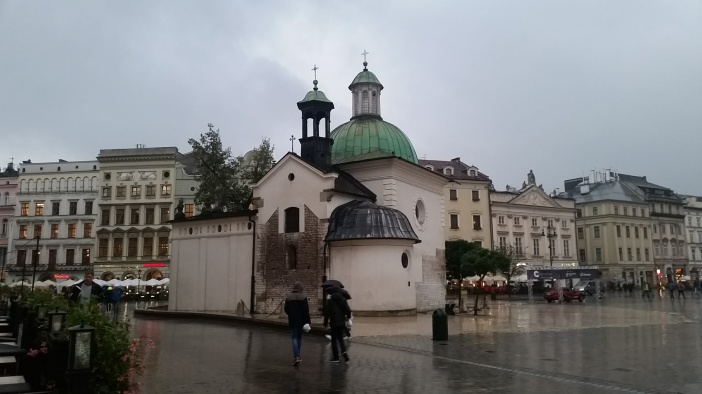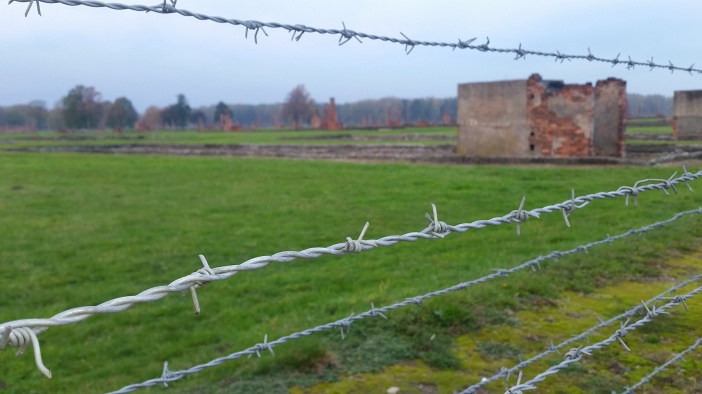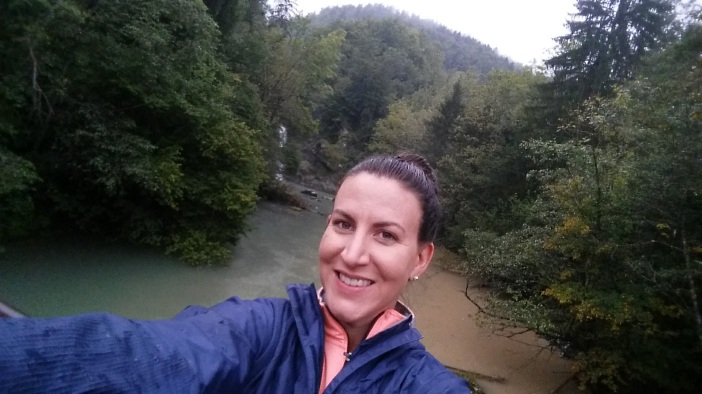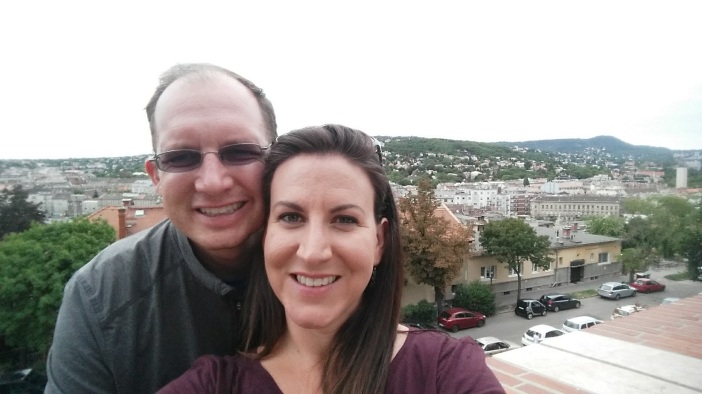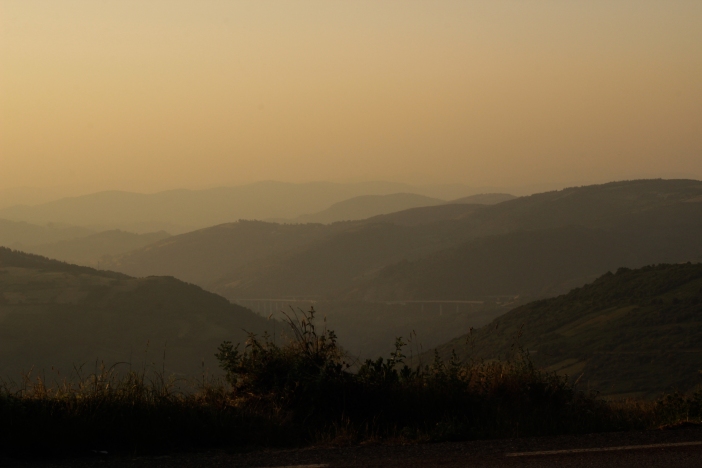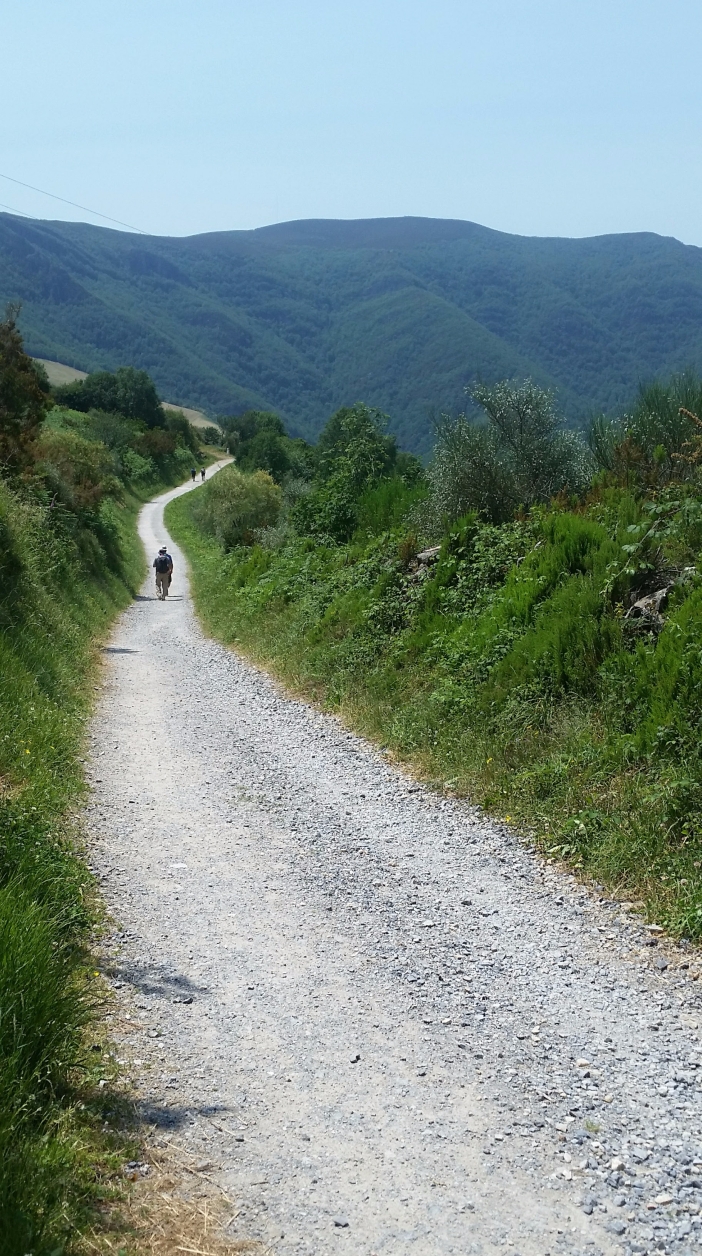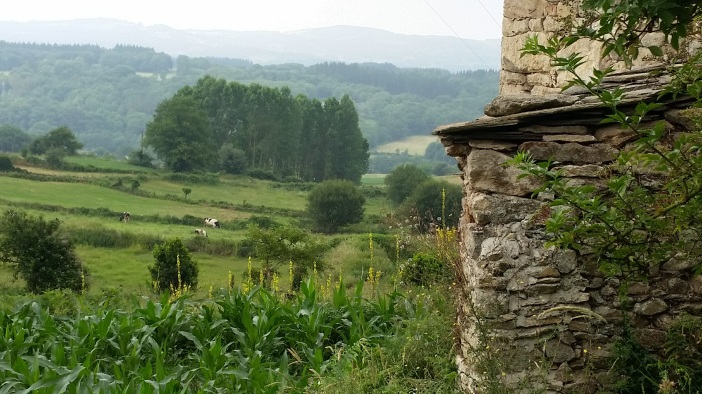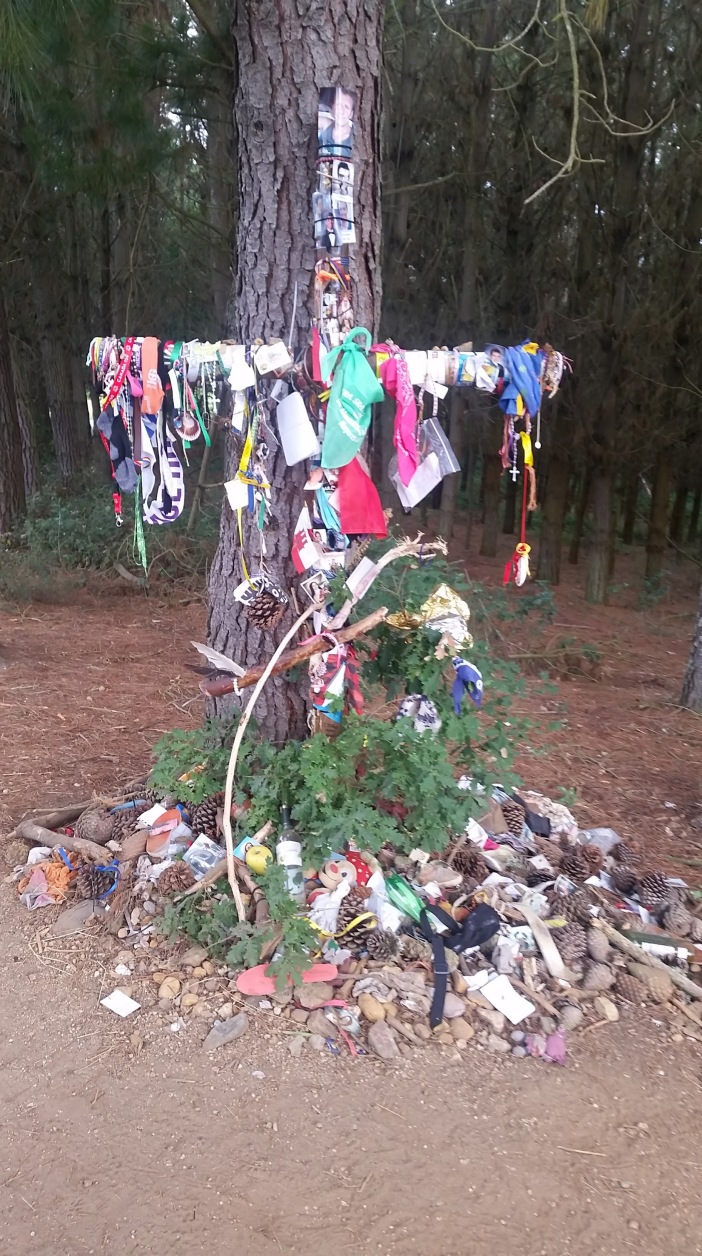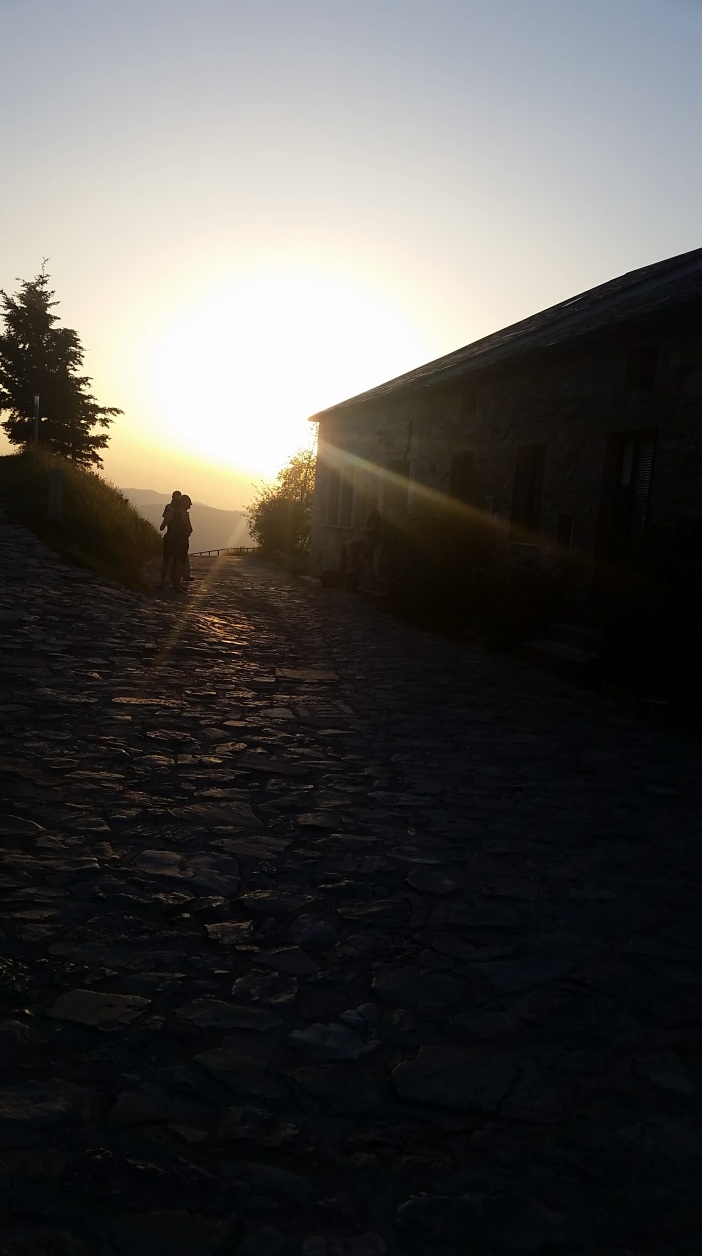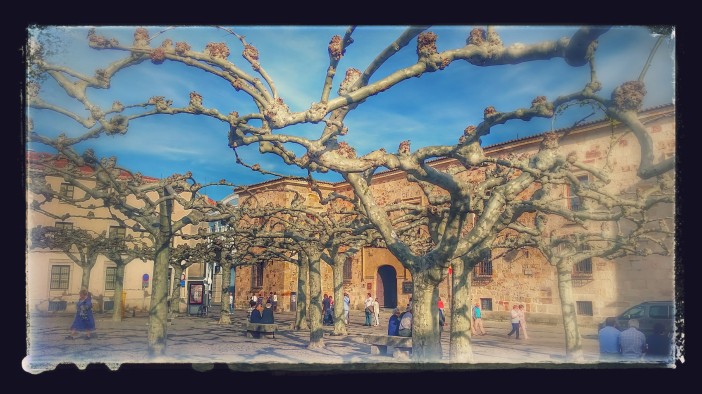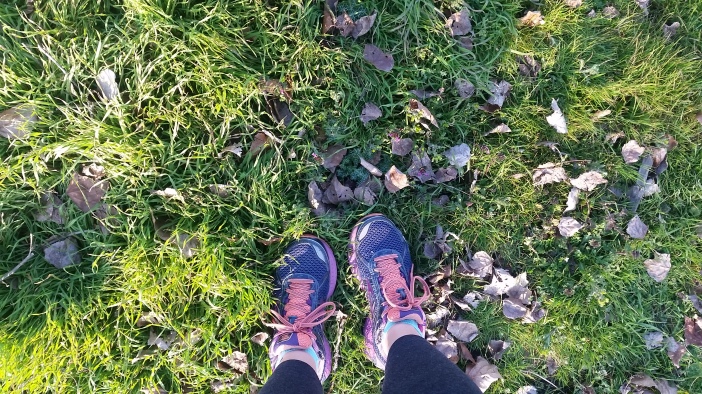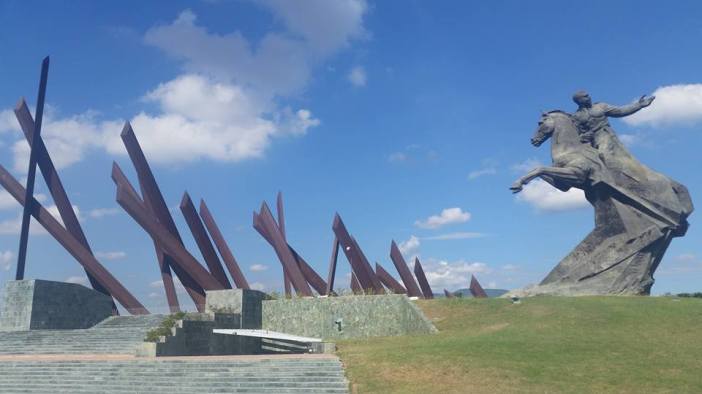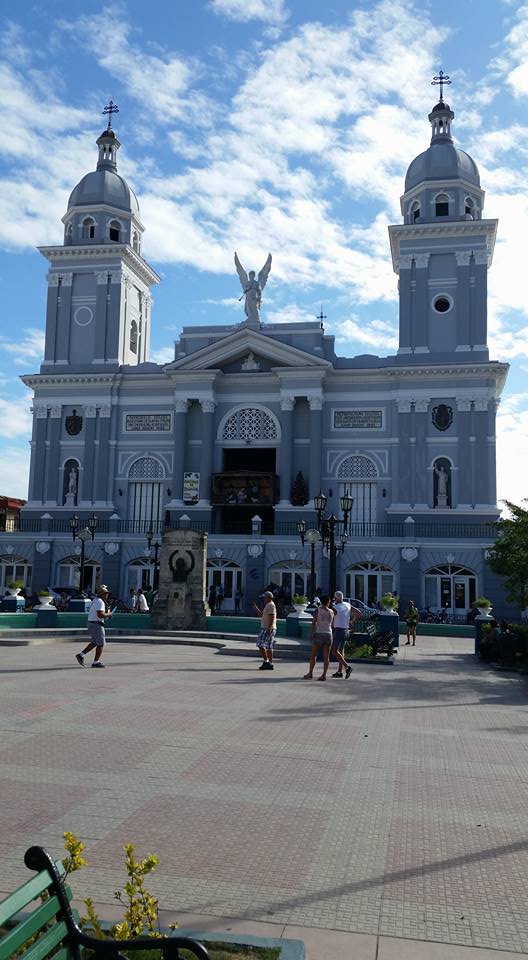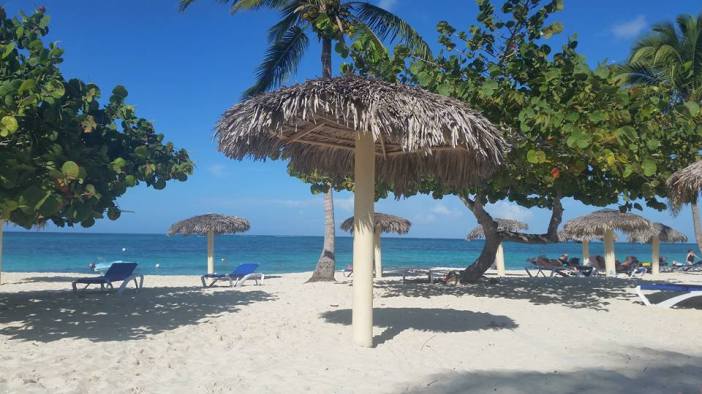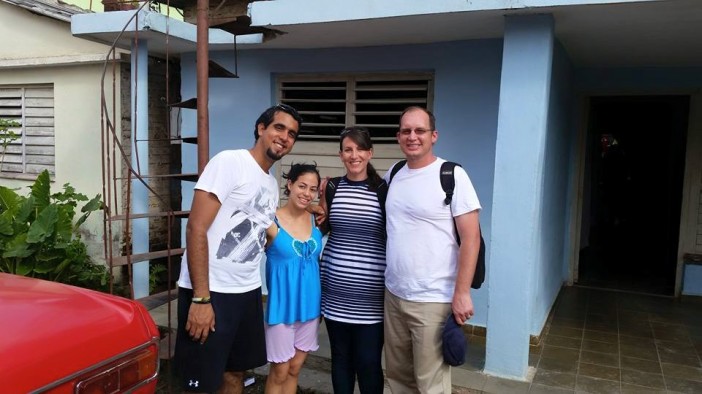My son is 7 weeks old, and I am sitting down with a hot, fresh cup of coffee and the chance to write. It seems like a lifetime ago that I had such luxuries! Between the sleepless nights, countless feedings, and consoling my baby, I have not had many opportunities to reflect on all this change, much less write about it.
My pregnancy was normal, and uncomplicated. For the most part, I enjoyed it. I loved the attention, and it was exciting experiencing all the “new” firsts: the first time you really show, first fetal movements, first ultrasound, etc. I’ll even go so far as to say the first real contraction was not so much enjoyable, but memorable, “Ooohh, THIS is what those feel like…”
With some confusion on the due date, I was expecting to go into labor anywhere between mid-late April. My husband and I’s birthdays are both in April, and we were thrilled to share our birthday month with our baby too.
On Sunday, April 22nd, I noticed some mild cramping, nothing too bad, just uncomfortable, but throughout the day I felt it more. I stayed home from church that day because the dull pain didn’t allow me to do much else than just sit or lie around. I had just been to the OBGYN on Friday and the fetal monitor indicated 1 or 2 very small, mild contractions in about a 30 minute span. The doc sent me home and said the baby could come any day, or I may have these sparse contractions for another week or two.
Sunday night, I went to sleep no problem, but throughout the night woke up with those pesky “cramps” again, and noticed they seemed a little more frequent, though sporadic. Wondering whether I was imagining it, or if it was the beginning of the big show, in the middle of the night, I called my mom and my sister-in-law. Thankfully they were still up. I talked through my symptoms with both of them, and even though I doubted it was time yet, they both encouraged me to go to the hospital. This was a big step, because the hospital is over 2 hours away. I didn’t want to go prematurely, because what a waste of time that would be. But I also didn’t want to wait too long, because it’s a 2+ hour drive to our hospital. So, around 5 am I woke up my husband, and uncertainly said, “honey, it may be time?”
Those cramps got a little more intense on the car ride, and I finally recognized the difference between “cramps” and contractions. Thankfully, the car ride was pretty uneventful, even if I had to clench my fists and pause briefly as the first contractions appeared. We got to the hospital around 7:45 am, and were admitted to the monitoring room. A nurse examined me, and hooked me up to the monitor, and even though I was feeling what I would call legitimate contractions, I was surprised when the RN told me I was only 1 cm and the contractions were very small (they didn’t feel small!).
Normally, at this stage, they would send you back home to wait for more progress. However, as we talked through our situation and options, taking the long trip back home didn’t seem like a great idea. We explained to our nurse that we’d rather wait it out in Madrid, even get a hotel if we had to, rather than go all the way back home. At this point, our nurse said in our case, we had a couple options. First, to wait it out naturally. Or, because I was already 39 weeks, they could break my water at the hospital and get the process going! At this news, Justin and I both looked each other and excitedly said, “yes! let’s do that one and have our baby today!”
I was wheeled to a delivery room where they broke my water, and while I didn’t feel much other than an unusual rush of warm water, I just remember Justin’s eyes getting big as he watched this procedure. Now, we waited. I began to feel the frequency and intensity of contractions increase, and realized now I was getting into the hard part. Originally, I had planned to forego an epidural, and indicated on my birth “plan” I preferred alternative methods to pain control: a yoga ball, hot shower, and various positioning techniques to help ease the pain- none of which I used by the way. For a little over 2 hours I endured excruciating pains, and only minor relief came when I sat on the toilet- no joke. No other position, ball, water, -nada- helped with the pain. I didn’t put on music like I had planned, or change into my “delivery clothes” like I planned. I brought essential oils- never used them. We brought a small massager, never got it out. The only thing I could focus on was getting these contractions to stop. At one point, I glanced at the chart in our room and saw a nurse’s handwriting on my chart: “no quiere epidural” (does not want epidural).
At this point I panicked and thought, wait, maybe I do want it! Ok, yes, I do want it! I told Justin to call the nurse and tell them I changed my mind. Within minutes a nurse and anesthesiologist came in and administered the epidural. I was afraid I’d be hooked up to a catheter, my main reasoning against one, but thankfully they didn’t. Now bed-bound, I found myself with some relief, although I felt guilty and upset with myself that I couldn’t “make it” without an epidural. I believed my pain tolerance was high and that with enough determination I could manage a completely natural, medication free birth. Ha! My other fear, was that in 2 hours I had only progressed from 1-2 cm. I thought at this rate, I’ll be experiencing this pain all day! Maybe I could manage to do a few hours, but not knowing how long it would all take, I didn’t want to miss my window of opportunity for relief. Justin was amazing at reassuring and encouraging me that we had made the right decision. He no more wanted to watch me in pain than I wanted to be in pain.
Once we had the epidural, things really moved quickly. From the time I received the epidural, I was about 2 cm. In the next hour or so, I went from 2-4 cm. At 4 cm, one nurse told Justin, if he wanted to grab anything eat now would be the time. He left for about an hour to go find food and take a walk, and in the time he was gone, I went from 4-9 cm. The doctor came in while he was out and said it was time, and she even had me “practice push.” I frantically called my husband, thinking if he’s not back any second, he’s gonna miss this! Finally he came back just in time for the medical team to join us in our room.
Around 3 pm I started pushing, Justin by my side holding my hand or rubbing my shoulder. After barely 15 minutes of pushing, at 3:12 pm, our baby had arrived! It’s incredible that I didn’t feel any pain during pushing. It was harder than I though to get the breathing right, and I couldn’t tell if I was making progress with each push. But I watched Justin’s face light up when he saw our baby’s head crown for the first time. He kept cheering me on that we were almost there, and when it was time for the final big push, I felt a different sensation and knew it was over.
Our son was immediately placed on my chest, covered with a towel but still gooey from delivery. The doctor cut the cord (we didn’t get an option for this), and for the next hour we simply enjoyed marveling at our precious new addition. I waited for the tears to come, but they never did. I felt incredibly happy, but not overly emotional. Justin cried for the two of us, especially when he held his son for the first time. That first hour was incredibly sweet, and I’m thankful we got that time together, just to realize our lives had forever changed.
After an hour, I was wheeled, with baby in my arms, to a recovery room. For the next 6 hours we had baby with us in my arms or in Justin’s. I don’t know how they do it in the U.S., but here they never took the baby out of my sight. Every check and procedure, was done in our room. I never had to be separated from my baby. We spent the next 2 days holding our baby, learning to nurse, taking photos, asking questions of the nurses, and trying to sleep. I was and still am forever amazed that we accomplished all of this- prenatal appointments and a hospital delivery- in our second language.
We had a wonderful experience at our hospital. The staff were incredibly kind and helpful, and we felt we were getting great “customer service.” We have private health insurance in Spain, and this is what we were hoping for. Those with public or social insurance often tell a very different story.
We had our little David on Monday afternoon. By Wednesday afternoon, we were discharged. On Tuesday I felt fabulous and had so much energy, thinking this will be a breeze! By Wednesday I was feeling quite different. On our way home, as I’m sure all new moms do, I felt overwhelming anxiety. Now what? It’s just us, and we have to care for this baby all by ourselves! I had no clue even where to begin!
That first night home, I was wracked with anxiety and questioning every little thing: the first diaper change, first bath, first feeding home, I second-guessed how I was doing everything! It didn’t help that I was beginning to feel the lack of sleep and on top of that all the normal postpartum pain, plus nausea.
To be frank, that whole first week home was utterly miserable. I was sick for a couple days with nausea and vomiting (side-effects from the epidural?), not to mention shaky from a recovering body, and with difficulty breast-feeding. After a few days of trying to nurse, it became clear our little one was starving, and we had to supplement with formula. An incredible feeling of guilt and defeat washed over me. I couldn’t seem to soothe my baby or even provide enough food for him. It seemed that every time I was holding him he was screaming. Justin would hold him to calm and soothe him, while I was just there to try and feed him every hour or so. It was exhausting, painful, and incredibly emotional. I’ll admit I was beginning to resent holding him, because he was crying so much and nothing I did brought comfort. After we introduced the bottle more, he became more full and more at ease. While I felt relief that my baby was finally feeling full, and sleeping for longer stretches, my inner voice kept telling me I wasn’t trying hard enough or working hard enough at nursing. I felt like something was wrong with me and that I had failed as a mom- first to deliver au-natural, then a failure at nursing. There is such pressure with doing everything natural these days, and I felt a stigma attached to bottle-feeding at such an early stage.
When my parents arrived a week after delivery, things started changing slowly. I was still going through “baby blues” which really became apparent to me when all I wanted to do was pass off my baby to be held by someone else. I remember one outing with my mom being half a day, and she asked me if I felt mom guilt for being away from my baby for so long. I remember saying I probably should feel guilty, but no! As my parents helped and I was able to take the time I needed to rest and recover, things improved. Our baby also improved as he was more content with each feeding, and sleeping better. He didn’t cry every time I held him, and I felt we were bonding more.
Now, after 7 weeks, our little bundle is happy, healthy, and growing. There are still days when I wish I was nursing, but honestly it’s bittersweet. I miss the closeness of those first few days, especially at the hospital when he relied on me for every ounce of nutrition. But now, I can be away for hours at a time if I need to, and someone else can feed my child. It allows me a freedom I didn’t expect, but have come to appreciate.
As David has developed, so has my love for him. Those first weeks were incredibly hard, but with each day, I have a little more confidence, and we gain a little more traction with his habits. He is awake and alert much more these days, and has started recognizing my voice and greets me with smiles when he’s focused on my face. It’s an incredibly sweet and precious time, although we still have our rough patches. We’re still learning how to soothe him and interpret different cries. I’m still reading a ton of “how-to advice” through books, articles and blogs and trying to balance that with just reading my baby. Sometimes I try to go by the book, other times I try to watch for cues from him. Most days we just wing it.
I’m definitely not the poster mom for Baby Wise, or What to Expect, or Baby Center, but I’m beginning to relax and realize that our baby is content, he’s developing, he’s progressing, and most importantly he’s loved. I know each stage comes with unique challenges, and I’ll try to be prepared for those as much as I can. But I’m recognizing that while difficult stages sometimes last for days or even weeks, if I just focus on getting through one day at a time, I can manage this. I can do this.
It’s incredibly hard being so far from family, friends, and a good support system with an infant. Most days are very lonely and long. Letting myself grieve the loss of support and help we feel has been hard, but good to go through. In a way it’s forced me to realize how capable I am and have to be for our baby. I have to be his advocate here. There’s a lot we don’t yet know in Spain, how to do this, where to go for this, in terms of our baby’s care. And we have to navigate it all through a second language. It’s daunting, but as I look back, I can see all we have accomplished and be proud of that.
Our baby boy is alive and well, and by the grace of God, so are we.


